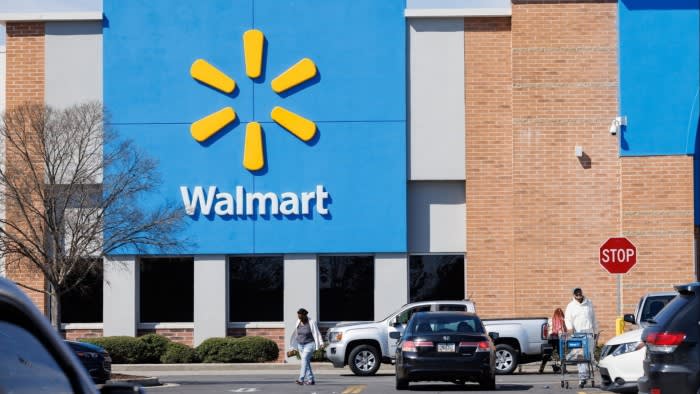Unlock the Editor’s Digest for free
Roula Khalaf, Editor of the FT, selects her favourite stories in this weekly newsletter.
Amazon, Walgreens, CVS and other big retailers have in recent years elbowed their way into the healthcare industry, spending billions of dollars on acquisitions.
For good reason: the US spent an estimated $4.5tn on healthcare services in 2022, according to the Centers for Medicare and Medicaid Services. That accounted for more than 17 per cent of gross domestic product. Yet a lack of transparency on pricing and waste makes the sector ripe for disruption.
Retail executives promised lower healthcare costs for consumers and market share gains and profits for their shareholders. But Walmart’s abrupt decision this week to shut its healthcare centres and telehealth operation underscores how difficult it is to disrupt and improve America’s dysfunctional healthcare market.
Walmart had hoped to leverage its vast store footprint to become a destination for affordable healthcare and vice versa. The idea was that customers who came in for their primary care appointments would do their shopping at Walmart too. But having announced plans last year to have 75 health clinics by the end of 2024, Walmart is closing the venture after opening just 51.
It warned that the “challenging reimbursement environment” and “escalating operating costs” meant it could not run Walmart Health as a profitable or sustainable business.
That should strike fear into other retail health players. Amazon, Walgreens and CVS have all snapped up primary care practices to take advantage of the shift in how medical care is paid for in the US.
Under the new value-based care approach, doctors are rewarded for keeping patients healthy instead of being paid for every service they perform. Primary care clinics and home care services are seen as ways to expand the delivery of preventive care.
Opening and running medical practices is capital intensive. Labour cost inflation, low reimbursement rates and the complicated process of billing and negotiating with insurers mean primary care centres — unlike surgery centres — are not very profitable. Their thin margins are similar to that of grocery stores, said Hal Andrews, head of Trilliant Health, a data analytics firm.
Walmart, which has eschewed big acquisitions in healthcare, is right to cut its losses. It may have been spooked by Walgreens. The drugstore operator took a near-$6bn impairment charge on its investment in clinic operator VillageMD in March and announced plans to close 160 of those clinics.
More money is expected to be spent on value-based care in the years ahead. But it will be companies with large health insurance divisions such as UnitedHealth not traditional retailers, that will have the best shot at capturing more of that $4.5tn pie.


